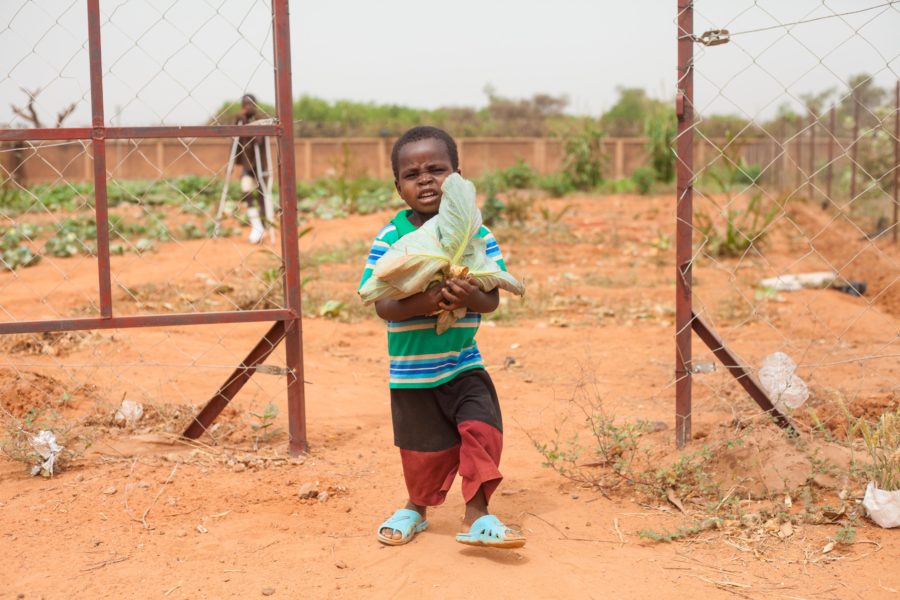Niger’s Patient Gardens
Niger is consistently ranked as one of the least developed countries in the world which, among other things, means transportation is often unreliable or non-existent. As such, it is a constant concern of ours that when the patients who come to CURE Niger go home, they may not be able to make it back for their follow up appointments. Missing these vital appointments leads to complications and the possibility of conditions reoccurring. One of the ways we’ve come to combat this possibility if offering long term accommodation to our patients in our patient guesthouse.

The guesthouse can hold approximately 20 patients and caretakers (guardians/parents to our patients). They live there in between their bandage changes and doctors appointments. Food is provided and their only job is to heal up as fast as possible! With this said, it can still be a rather challenging experience – away from family, friends, and everything familiar. Not to mention that the act of healing is, in itself, mindlessly boring. You’re literally just sitting there, giving your body the time it needs to fix itself back up after surgery.

With this knowledge, our spiritual staff do an incredible job of engaging both the minds and souls of our guests. Every day there is an activity for the patients whether it is crafts and games with the children, watching Christian TV programme or film in the local language or the teaching of practical skills such as sewing or soap making for the mothers. Our spiritual staff is always searching for and brainstorming new ways to both entertain and invest in our patients.

It was during one of these brainstorming sessions that our spiritual staff arrived at the idea of opening a section of our land up as a patient garden. With the help of a partner organisation CBM, this casual idea soon became a physical reality. Outdoor water taps were placed, fences were installed, and tools were procured. Before long, the patient’s caretakers were just as excited as we were and the garden was opened. Lettuce, cabbage, carrots, and eggplants were all planted and tenderly cared for over the next several months.

None of the residents of our patient guesthouse need the food grown in the garden, but it’s a source of pride for them. It’s not only something to do or a way to add a little variety to the hospital food they’re provided, but it’s a way for them to provide for their family during a difficult time, where they’re almost entirely dependent on charity. American author and poet Wendell Berry sums it up nicely when he says:

One of the most important resources that a garden makes available for use, is the gardener’s own body. A garden gives the body the dignity of working in its own support. It is a way of rejoining the human race.


While Wendell Berry isn’t widely read in Niger, his observations certainly hold true.
The vast majority of people in this part of the world are sustenance farmers by profession meaning they have no other full time occupation besides growing enough food to feed their family over the course of a year. If they manage to grow more than is needed, they will sell the excess, but more often than not they are entirely dependent on what little they can coax out of the hot, Nigerien sand.

So more than just being an activity to fill their time, the garden has also become a venue where various families can exchange farming techniques and best practices. With families from all over not only Niger, but all of West Africa (as we have family’s here from countries such as Mali, Nigeria, and Sierra Leone) sharing knowledge can be extremely valuable and possibly life changing as they learn from one another.

While the garden is coming to mean many things to the guardians here at CURE Niger, for the kids, it’s really just an excuse to eat fresh carrots.
